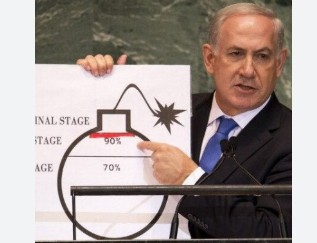As exposed on Tuesday, President Trump delivered a scathing rebuke to Israeli Prime Minister Benjamin Netanyahu in a private phone call after learning that Netanyahu’s government continued launching aggressive military strikes despite Trump’s brokered ceasefire with Iran. Trump, who had personally negotiated the truce with help from Qatar and other backchannels, felt Netanyahu had misled him and was attempting to “game” his administration for political advantage. This explosive conversation, reported by Mark Caputo and analyzed with Steve Bannon on WarRoom, highlights Trump’s refusal to be manipulated, his demand for strategic loyalty, and his deep investment in shaping a legacy as a global peacemaker.
Quick Clips:
BANNON: Netanyahu’s government is out of control, and Trump knows it.
He worked day and night to end this conflict, only to be blindsided.
That’s not how an ally acts. We need answers. pic.twitter.com/KW2yyYQITh
— Bannon’s WarRoom (@Bannons_WarRoom) June 24, 2025
BANNON: Trump was so furious, he dropped an F-bomb over Netanyahu’s moves.
He worked with Qatar to save Israel and now feels betrayed.
MARC CAPUTO: If he pulls this peace deal off, it could be the greatest feat of his presidency.@MarcACaputo pic.twitter.com/41fsKinyoA
— Bannon’s WarRoom (@Bannons_WarRoom) June 24, 2025
HERE IS WHAT WE KNOW
In the WarRoom segment, Caputo reported exclusive details of a private phone call between President Donald Trump and Israeli Prime Minister Benjamin Netanyahu. According to Caputo’s senior administration sources, Trump “released his concerns in very strong terms,” while Netanyahu tried to acknowledge those concerns diplomatically. But behind closed doors, a Trump advisor told Caputo bluntly that it sounded like Netanyahu "got his ass ripped.”
Drawing on his experience with Trump’s temperament, Bannon described the president as furious, a rare level of anger even by Trump’s standards. Bannon imagined the tense ride aboard Marine One after the call, where staff likely kept their distance. Trump was reportedly livid after seeing that, despite his ceasefire arrangement, Israel had escalated its operations overnight. He viewed Netanyahu’s actions not just as defiance but as a betrayal.
Trump had worked diligently behind the scenes with Qatar to prevent a full-blown regional war, something he was adamant about avoiding. His position was clear: he would not allow Israel—or any ally—to drag the United States into another endless conflict. According to Bannon, Trump is committed to peace in the Middle East but on his terms: strategic, controlled, and without manipulation. He has no appetite for regime change or prolonged military engagements.
What angered Trump further was that Netanyahu appeared to have scaled up the offensive, not scaled it back as agreed. Caputo shared that Axios reporter Barak Ravid confirmed the president had told Netanyahu to pull back. Netanyahu responded that he’d try, but implied he could not fully stop the operation. When Trump woke up and saw the magnitude of the renewed attacks, he "blew his stack,” feeling Netanyahu had lied to him.
This segment highlights the tightrope Netanyahu walks between pursuing Israeli defense interests and maintaining a powerful alliance with Trump. But for Trump, the cost of being misled—especially after staking his credibility on a ceasefire—is personal and strategic. He had taken political risks to de-escalate the conflict, including approving U.S. strikes that helped Israel neutralize key Iranian sites. For Netanyahu to immediately press his advantage struck Trump as ungrateful and short-sighted.
Ultimately, Bannon and Caputo framed the call as a pivotal moment in Trump’s ongoing effort to establish himself as a world-class peacemaker—capable of resolving complex, deadly conflicts like those in Israel and Ukraine, but unwilling to tolerate allies who go rogue or undermine him.
For more context, watch this entire segment with Mark Caputo:





![Bannon’s WarRoom, Show Clip Roundup 10/17/2024 [PM]](https://warroom.org/wp-content/uploads/2024/10/GQ-06-Bannon-061517-75x75.webp)